An Appraisal of Gender Roles in Islam Regarding the Quranic Concept of Qiwama
The Quranic verse that suggests ‘men are caretakers of women’ (4:34) articulating the unique Islamic family system known as qiwāma (responsibility of man to protect and manage the affairs of woman) is a controversial theme across feminist discourses. This verse[1] is, therefore, usually considered as a misogynist one. This article discusses the real essence of gender roles in an Islamic family system mainly based on Quranic commentaries. This is because a portion of the verse 4:34 reads: men are caretakers of women since God has excelled some of them upon the others.
The term ‘excelled’ is corresponding to the Quranic term faddala. Gender roles come under the scope of this term since the apparent meaning of the verse is ‘men possess the role of caretaking the woman since God has made him excel upon woman’. This article examines certain major Quranic commentaries to know whether the Quranic term faddala demands an androcentric monarchy upon women imposing certain gender roles or it suggests a complementary strategy between men and women.
Qiwāmah and Gender Roles
A major controversial theme that lies at the core of qiwāma is specific gender roles. Does qiwāma necessarily determine two specific roles for each gender (breadwinning for man and homely duties for women) in society? The answer, according to the Quranic commentaries, is ‘yes’. But what should be earnestly discussed is that whether the two specified areas are like two watertight compartments which never conflate in accordance with the mutual consent (tarāḍī) and consultation (tashāwur) between the two spouses of a family. It is the evident fact that gender roles differ in most societies. A clear answer based on the general spirit of medieval and modern Quranic commentaries is that qiwāma rejects such gender roles which are like two watertight compartments. Rather, it divides the roles considering the unique features of both genders separately and still recommends the conflation of roles when the situation demands. An eloquent attestation of this idea can be found in the early and modern commentaries as well.
The term faddala and the Excellence of men upon women
Al-Razi and al-Sharawi perceive man’s faḍl (excellence) as a recompense in lieu of woman’s exclusive right to get mahr and sustenance (infaq), thus relieving her from hardships in the workplaces.[2] Al-Qurtubi stipulates that the benefit of qiwāmah should finally go to women, thus dismissing the idea that qiwāma turns out to be a mere power of the monarchy.[3] Similarly, Ibn al-Arabiadvocates common rights for spouses[4], whereas SayyidQutub envisions a ‘dual institution’ that assures total peace, mutual consultation and harmony.[5] The reciprocal status of family life is seriously advocated by SayyidQutub. To emphasize this, he claims man and woman are ‘two parts of the same soul’ (shaṭrainafsinwāḥidah), which is borrowed from the Quranic phrase ‘minnafsinwāhidah’[6]. He remarks qiwāma -based family system is a ‘dual institution’ (al-mua´ssasah al-zawjiyyah) that is essentially incorporative of the two spouseswith specifically allocated roles, which is also an imitation of Quranic verse.
Interestingly, this notion of mutual duality or dualism between male and female is a prevalent trend throughout the Qurʾānic verses. The singular dhakar (male) occurs with its complement unthā (female) twelve times in the Quran, making twenty-four instances of male and female in these phrases. Simultaneously, there are twelve references to wombs (arḥām) wherein both of them are created, as the Kuwaiti writer Nazīha al-Dukhān observed.[7]
Al-Tabri, has quoted the famous cousin of Prophet, who infers a converging point between infāq and faddala that is ‘His (man) excellence upon them (one woman or more than one in case of polygyny), is due to the fact that he is responsible to the breadwinning for the sake of his family”[8]. Clearly, instead of considering faḍḍala and infāq two separate reasons of qiwāma, Ibn Abbas finds a converging point between the two. This convergence shows that the term faḍḍala in the Quranic verse does not stand for any kind of oppressive placing of man over woman. Instead, it is a divine enjoinment of responsibility upon man.
Abu Hayyan al-Andulusi, in his famous commentary ‘al-Baḥr al-Muḥīṭ’ acknowledges a possibly common interpretation in his time that the scope of faddala does not apply on each and every individual of male and female, but instead, in general[9]. It is because of the fact that there are countless women who perform well, more efficiently than men, he argues. Rashid Rida, while explaining Muhammad Abdu’s commentary, also confirms the same interpretation of al-Andulusi[10]. Moreover, it is to imply the fact that the Quran, according to Andulusi, uses an ambiguous sentence that is ‘made one of them to excel the other’, instead of an unequivocal statement, which is possibly: ‘made men to excel women’.
Considerably, the Quran, in this way, proclaims equality of two genders referring to their same single origin.ZeenathKausar, a famous Malaysian based woman intellectual, completely rejects man’s domination and woman’s subservience to man and she says; “Islamic family system is neither patriarchal nor matriarchal rather “consultational andshurā-based”.[11]She further argues: “a deeper reflection of the term qawwāmūn reveals that they (patriarchy and qiwāmah) are not synonyms”.[12]
AminaWadud engages the issue of gender roles as she states: “the Quran does not divide the labour and establish a monolithic order for every social system which completely disregards the natural variations in society. On the contrary, it acknowledges the need for variations”.[13] Such variations have clearly been demonstrated by her while she asks: What happens in capitalist societies like America where a single income is no longer sufficient to maintain a reasonably comfortable style?[14] Nevertheless, AminaWadud has been criticized to have moved in line with the normative ideals of secularism which are, at times, hegemonic and biased while engaging the notions of freedom and choice.[15]
A strong reference made by the Quran to the flexibility of gender roles is that neither woman nor man can be harmed for their child’s cause. The Quranicverse goes: “No one should be charged beyond his capacity. A mother should not be made to suffer because of her child, nor should he to whom the child is born (be made to suffer) because of his child”(2:233).
This verse indicates the wide scope of mutual consent between man and woman regarding gender roles. In other words, the lack of Quranic injunctions or hadiths specifically defining the social role of women indicates the flexibility of gender roles in society.[16]
In sum, what Quran actually demands its followers is to build up a strong family system in which both the woman and man can enjoy their rights and perform their duties based on mutual consent and cooperation and not on power relations.
Endnotes
[1]The complete verse of qiwāma is: Men are the protectors and maintainers of women, because Allah has given the one more (strength) than the other, and because they support them from their means. Therefore, the righteous women are devoutly obedient, and guard in (the husband's) absence what Allah has entrusted them with. As to those women on whose part ye fear disloyalty and ill-conduct, admonish them (first), (Next), refuse to share their beds, (And last) beat them (lightly); but if they return to obedience, seek not against them Means (of annoyance): For Allah is Most High, great (above you all).
[2] Al-Rāzī, Fakhruddin, (1981), 10: 90 and al-Muthawalli al- Sharawi, 2193.
[3] Al-Qurtubi, Al-Jamiʿ li Aḥkām al-Qurān, (Cairo: DÉr al-KitÉb al-Misri,1960), 5:169
[4]Ibn al-Arabi, Muhammad bin Abdilla, Aḥkām al-qur´ān, (Beirut: Dār al-kutub al-ʿilmiyyah), 1:531
[5]SayyidQutub, Fīḍilāl al-Qur´ān, (Beirut: Dār al-Shurūq,1985), 2: 652
[6]O mankind, fear your Lord, who created you from one soul and created from it its mate and dispersed from both of them many men and women. And fear Allah, through whom you ask one another, and the wombs. Indeed Allah is ever, over you, an Observer. (4:1)
[7]Raymond K. Farrin,“Sūra al-Nisā´ and the Centrality of Justice”, Al Bayān Journal of Qur´ān and Hadīth studies.14 (2016): 3, accessed March 10, 2017, doi: 10.1163/22321969-12340028.
[8]Al-Tabari, Tafsīr al-Ṭabarī: Jāmiʿ al-Bayānʿan Ta ʾwīlāy al-Qurʾān (Cairo: DÉr al-SalÉm, 2005), 3: 2287
[9]Al-Andulusi, Al-Baḥr al-Muḥīṭ, (Beirut: Dār al-kutub al-ʿIlmiyya,1994), 3:249 3:249
[10]Rashid Rida, Tafsīr al-Manār, (Cairo: Al-Manār Publications, 1910), 68
[11]ZeenathKausar, Politicization of Sex and Familly Devaluation in Feminism, (Petaling Jaya: Ilmiah Publications, 2003), 146
[12]Kausar, Politicization of Sex, 153
[13]AminaWadud, Quran and Woman: Reading Sacred Text from a Woman’s Perspective, (Oxford: Oxford University Press, 1999), 67
[14]AminaWadud, Quran and Woman , Quran and Woman: Reading the Sacred Text from a Woman’s Perspective (Oxford: Oxford University Press, 1999), 73
[15]See FaridEssack, “Islam, Feminism and Empire: a comparison between the approaches of AminaWadud and Saba Mahmood”. Journal of Gender and Religion in Africa, 21 (2015): 27-48, https://www.academia.edu/25000362.
[16]Roald, Anne sofie, Woman in Islam, the Western Experience, (London: Routledge, 2001), 178
(Rasheed Hudawi Elamkulam. Head, Department of Study of Religions, Darul Huda Islamic University)
Disclaimer
The views expressed in this article are the author’s own and do not necessarily mirror Islamonweb’s editorial stance.

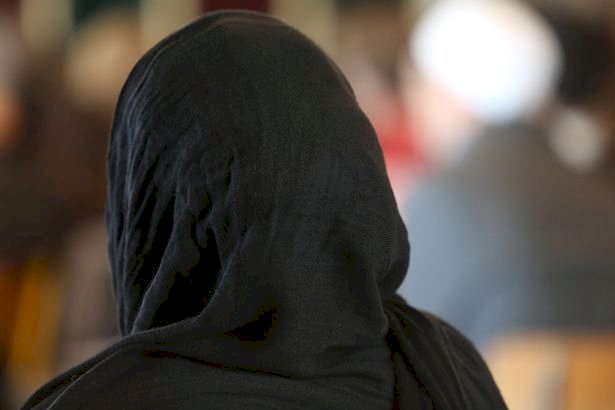



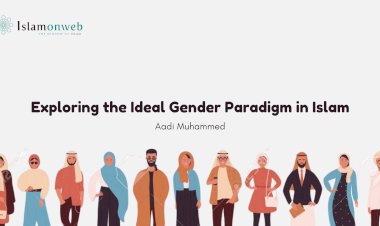
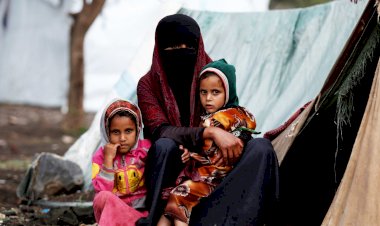
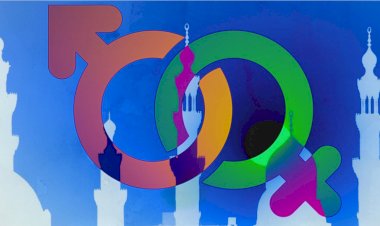
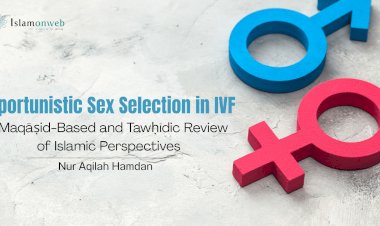
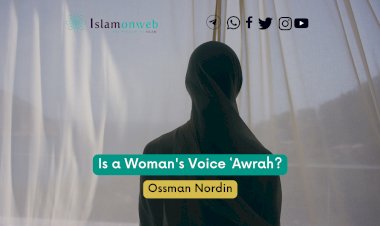














Leave A Comment